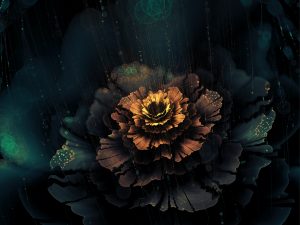Since its publication in 1968, Philip K. Dick's Do Androids Dream of Electric Sheep? has been interpreted by academics and scholars in various, fascinating ways. Here are some newer analyses of this classic for those interested in a deeper reading.
- "Electric Nature: (Re)Constructing Wilderness in Do Androids Dream of Electric Sheep?" by Aaron A. Cloyd, Journal of the Fantastic in the Arts, 2015
Cloyd places the book within the environmentalist movement of the 1960s and argues for its end-of-times distinction by blurring the divide between nature and industry.
- "The Dangers of Individualism and the Human Relationship to Technology in Philip K. Dick's “Do Androids Dream of Electric Sheep?” by Christopher A. Sims, Science Fiction Studies, March 2009
If you like philosophy, you're offered a large dose in this essay, which uses Heidegger to understand how the book portrays technology as a vital source for understanding the human condition.
- "More Human Than Human": "Flattening of Affect," Synthetic Humans, and the Social Construction of Maleness" by Jordan Greenblatt, English Studies in Canada, March-June 2016
Greenblatt examines the negative implications of being an android in PKD's and other SF texts by asking: what does society's aversion to androids/robots say about our perception of human biology?
- "Adapting (to) Philip K. Dick's Perceptual Play" by Ruben Mendoza, Science Fiction Studies, March 2014
Mendoza compares the original narrative to its theatrical counterpart written by Edward Einhorn (2010), bringing nuance to the story's metaphysical meaning through her critique of the performative version.




Add a comment to: Novel Interpretations: Understanding “Do Androids Dream of Electric Sheep?”